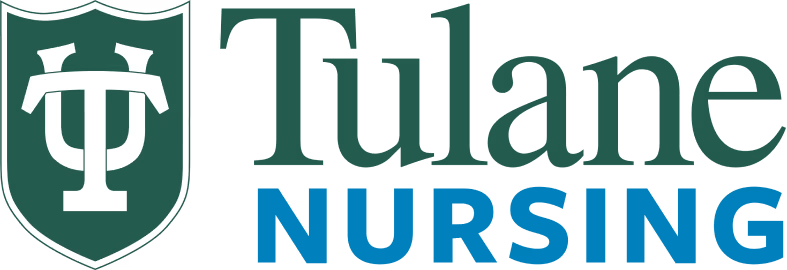Public Health vs. Community Health in Nursing
What’s the difference between public health vs. community health nurses? While they are similar, they differ in their focus and practice. Public health nurses take a clinical approach in establishing health guidelines and programs, while community health nurses work to close the gaps between their community and healthcare.

What distinguishes public health vs. community health nursing? The roles are very similar — both public health and community health nursing strive to promote health equity in communities through health promotion and prevention. However, there are disparities in their approach and population focus.
If you are community-minded, becoming a public health or community health nurse could be a highly rewarding career path. Regardless of your chosen role, you will provide a meaningful and powerful impact on healthcare delivery in your community.
Tulane University’s School of Medicine has a long history of educating skilled and compassionate healthcare professionals committed to serving their communities throughout New Orleans. The School of Medicine and School of Professional Advancement partnered to create the new accelerated Bachelor of Science in Nursing (aBSN) program to further Tulane’s commitment to education, innovation, and community service.
The aBSN program is designed around the Next Generation NCLEX, preparing students to confidently earn their nursing licenses and embark on their careers. Through nursing coursework, simulation experiences, and hands-on nursing clinicals, students can graduate in as few as 16 months with a comprehensive nursing foundation that allows them to pursue the specialty they’re most passionate about.
Below, we will explore the public health and community health nursing careers, highlighting their responsibilities and the key differences in their approach to public health.
What is Public Health Nursing?
Public health nursing promotes and protects population health through nursing, social, and public health sciences, aiming to improve the health of the overall population and decrease the risk of disease and injuries. These nurses comprise the largest portion of the public health workforce, working in various environments, such as health departments, schools, clinics, and more.

Public health nurses use a systematic approach assessing the following:
- Community strengths and needs
- Scientific research
- Available community resources
- Nursing practice standards
- The population’s historical participation
- The population’s understanding of public health initiatives
Public health nurses first identify the needs of the community’s overall population, subpopulations, families, and individuals at risk of illness, injury, or disability. Using the criteria described above, they develop and implement an intervention plan to meet the public’s healthcare needs while conducting periodic evaluations for effectiveness and impact.
Their findings are instrumental in delivering patient care and healthcare resources on local, state, and national levels.
Public Health Nurse Duties and Responsibilities
Public health nurses participate in a wide range of duties and responsibilities. With a primarily clinical approach, they work to improve the public’s quality of life. From working one-on-one with a community addressing public health emergencies to developing policies for keeping people safe in the workplace, no day is the same.
The following is a sample of public health nurse responsibilities:
- Address public health emergencies (e.g., natural or manmade disasters, infectious disease outbreaks)
- Participate in disease prevention by tracking outbreaks and providing immunizations
- Collaborate with schools to set in place health, nutrition, and developmental initiatives
- Provide community education
- Organize advisory boards and coalitions to promote public health
- Acquire research data and contribute to policy development
What is Community Health Nursing?
Community health nursing is part of broader public health services but focuses on providing culturally appropriate initiatives to help improve access to healthcare resources and education for underserved populations.

Community health nurses are community outreach-focused and seek to bridge the gap between specific populations and healthcare. They possess a keen understanding and cultural awareness of the communities they serve and are experienced in helping individuals navigate the social and economic barriers that may prevent access to vital healthcare.
Community health nurses work in various settings, such as hospitals, health clinics, and aid organizations. They work closely with these aid organizations as well as the community and leaders to address the many factors that impact health, including nutrition, mental health, and homelessness.
Community Health Nurse Duties and Responsibilities
Community health nurses are instrumental in connecting their community to vital healthcare and are essential to the team of community health workers. They work alongside other community health professionals to perform any of the following tasks:
- Disseminate culturally appropriate education materials and resources
- Advocate for community health needs
- Offer direct community health services (e.g., treatment, blood pressure screenings, and vaccinations)
- Conduct outreach programs connecting community members to health services
- Provide interpreters and translation services
- Improve cultural competence in community health services
Key Differences Between Public Health vs. Community Health
While public health and community health nursing seek to improve healthcare equity, they differ mainly in their work environments and approach to serving the public. Public health nurses tend to be employed by the federal government, while community health nurses are typically employed by state or local governments.
Public health nurses have a broader scope of focus. Their promotion and prevention initiatives serve people across populations and are founded on clinical practices, historical records, scientific studies, and population data. Conversely, community health nurses take a non-clinical approach and focus on developing and increasing access to health resources for target communities, such as cities or neighborhoods.
An example of these differing focuses is addressing high obesity levels. Public health nurses participate in the development of guidelines that address high obesity levels. They then help the public make healthier choices by creating national programs and distributing evidence-based education materials on nutrition and fitness.

In contrast, community health nurses take a more localized approach. They review their community’s health resources and work with leaders and local businesses to offer culturally informed programs that promote nutrition and exercise within their specific communities.
Public Health vs. Community Health Nurses: Career Outlook
With a national nursing shortage and an aging population, the career outlook for registered nurses is highly promising. Considering the population’s changing health needs, public and community health nurses are also in demand.
Salary and Career Outlook
The U.S. Bureau of Labor Statistics (BLS) does not differentiate salary data between public health and community health workers; however, the median salary for registered nurses as of 2023 is $86,070 nationally and $76,650 in Louisiana. The highest paying industry for registered nurses is federal, state, and local government, not including state and local government schools, hospitals, and the U.S. Postal Service.
Additionally, community health worker employment is projected to grow 14% across the United States and 12% in Louisiana between 2020 and 2030. Registered nurse employment is projected to grow 6% nationally and 2% in Louisiana during the same period.
Education and Certifications
Investing in a comprehensive education is the first step to becoming a public health or community health nurse. To qualify for a nursing position in the public health sector, you must first be a licensed registered nurse.
This journey begins with earning a nursing degree: an Associate Degree in Nursing (ADN) or a BSN. While an ADN has a shorter timeline for completion, earning a BSN opens many career doors. Nurses with a BSN are in demand because the comprehensive education prepares them for a wide range of clinical care. Many studies indicate a connection between a higher proportion of BSN-educated nurses and improved positive patient outcome rates.

Traditional BSN programs are typically four years long, but you may be eligible to apply to the aBSN program at Tulane University, provided you have 60 undergraduate non-nursing credit hours. This program would allow you to graduate in as few as 16 months. Our aBSN curriculum includes three components:
- Online Coursework: Establish foundational nursing and science concepts through coursework on an e-learning platform.
- Simulation Experiences: Skills labs and simulation labs allow students to practice core nursing skills and navigate clinical scenarios in a simulated setting alongside Tulane medical students.
- Clinical Rotations: Students provide direct, real-world patient care under supervision in various healthcare settings throughout New Orleans.
After completing your nursing degree, you must pass the National Council Examination for Registered Nurses (NCLEX-RN). The NCLEX-RN assesses your clinical judgment and nursing competency and requires significant preparation. At Tulane, students are prepared for the NCLEX throughout the aBSN program and are encouraged to start studying at the beginning of the program.
You can only start working as a registered nurse after earning your nursing license and registering with your state board of nursing. Many positions require you to gain clinical experience before pursuing a public or community health job, so you may need to apply to entry-level nursing positions at healthcare facilities before embarking on your public health career journey.
Lastly, you can pursue optional certifications to strengthen your credentials, such as certification from the National Board of Public Health Examiners for public health nurses or the Community Health Nursing Certification for community health nurses.

Launch Your Nursing Career with Tulane University
Serving your community is at the center of the nursing profession, and Tulane University takes this responsibility seriously — 75% of the aBSN semesters include Population and/or Community Health centered courses. Our aBSN curriculum is designed to inculcate students with a commitment to community and community health outcomes fostered through community immersion experiences.
Contact an admissions counselor today to learn more about our admissions requirements. Our admissions team is dedicated to helping you navigate the admissions process and launch your nursing career with Tulane University.

